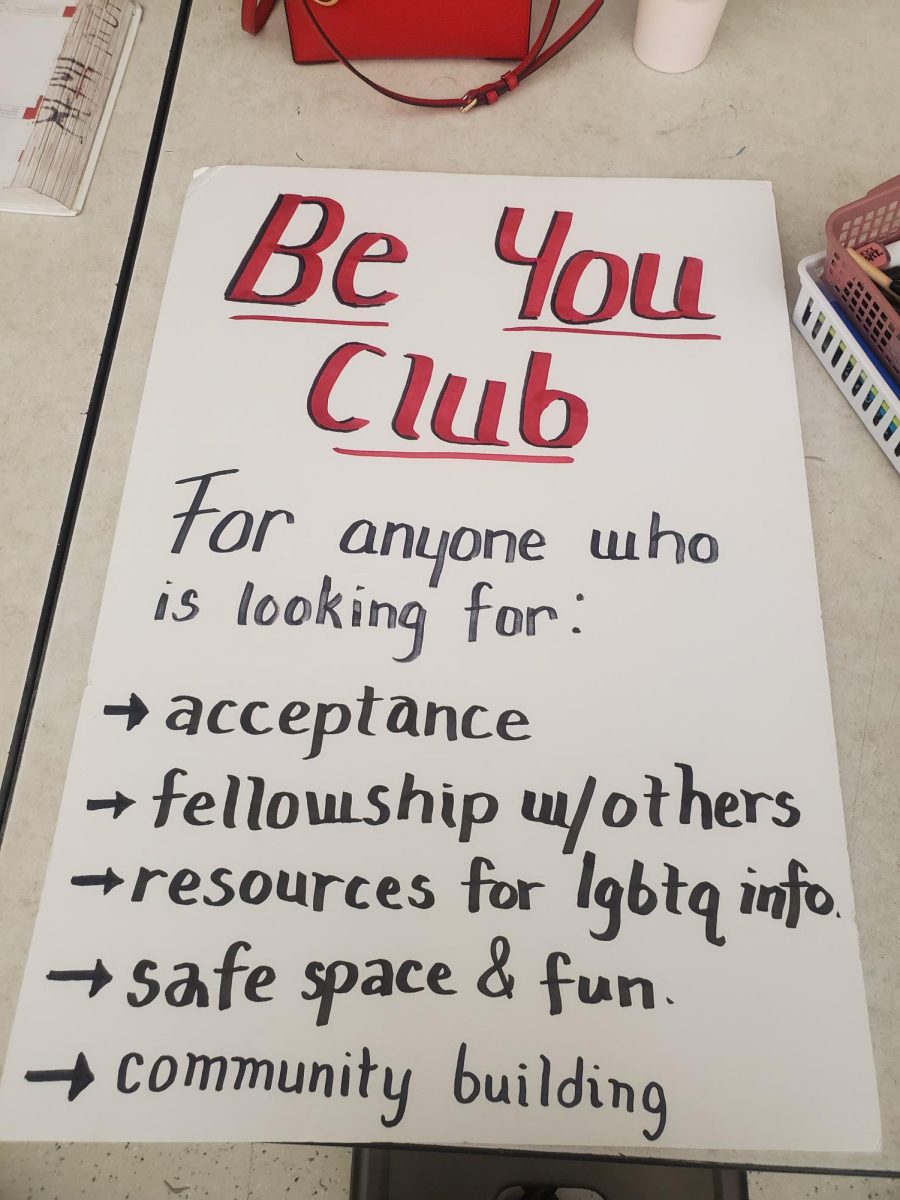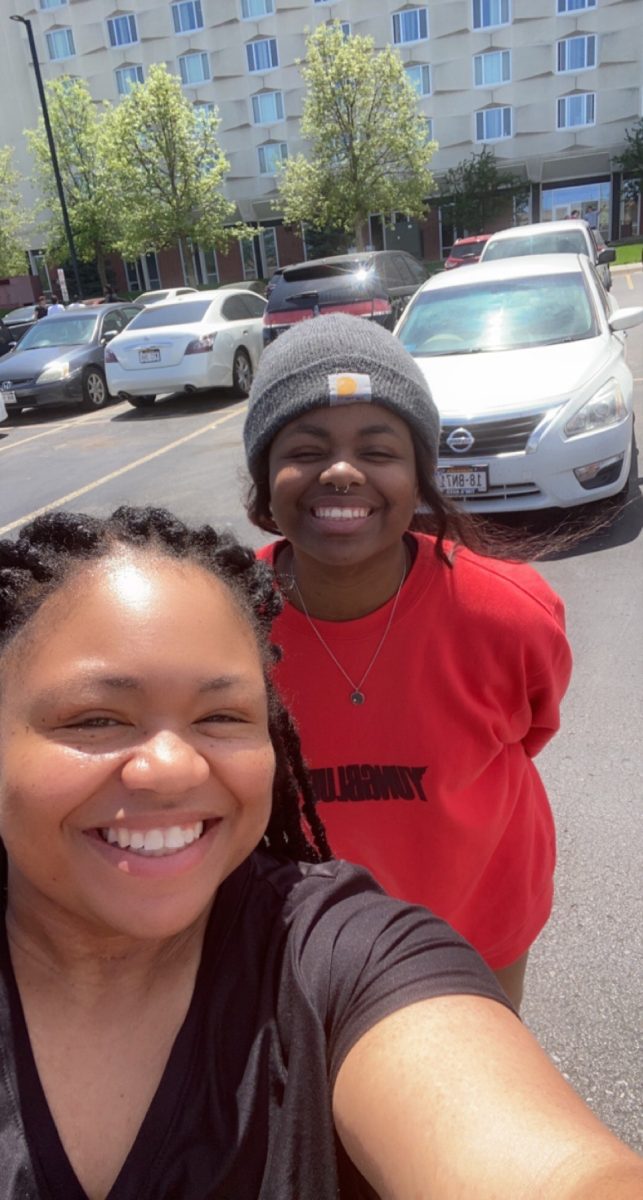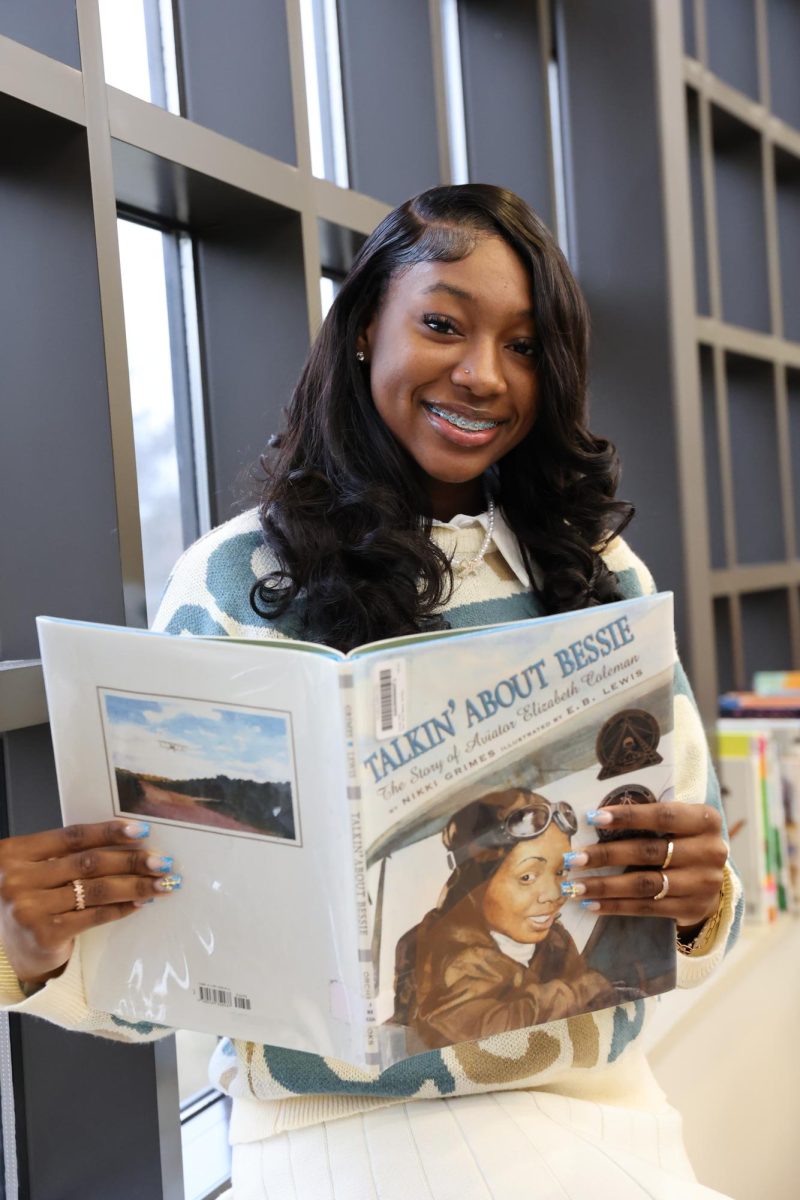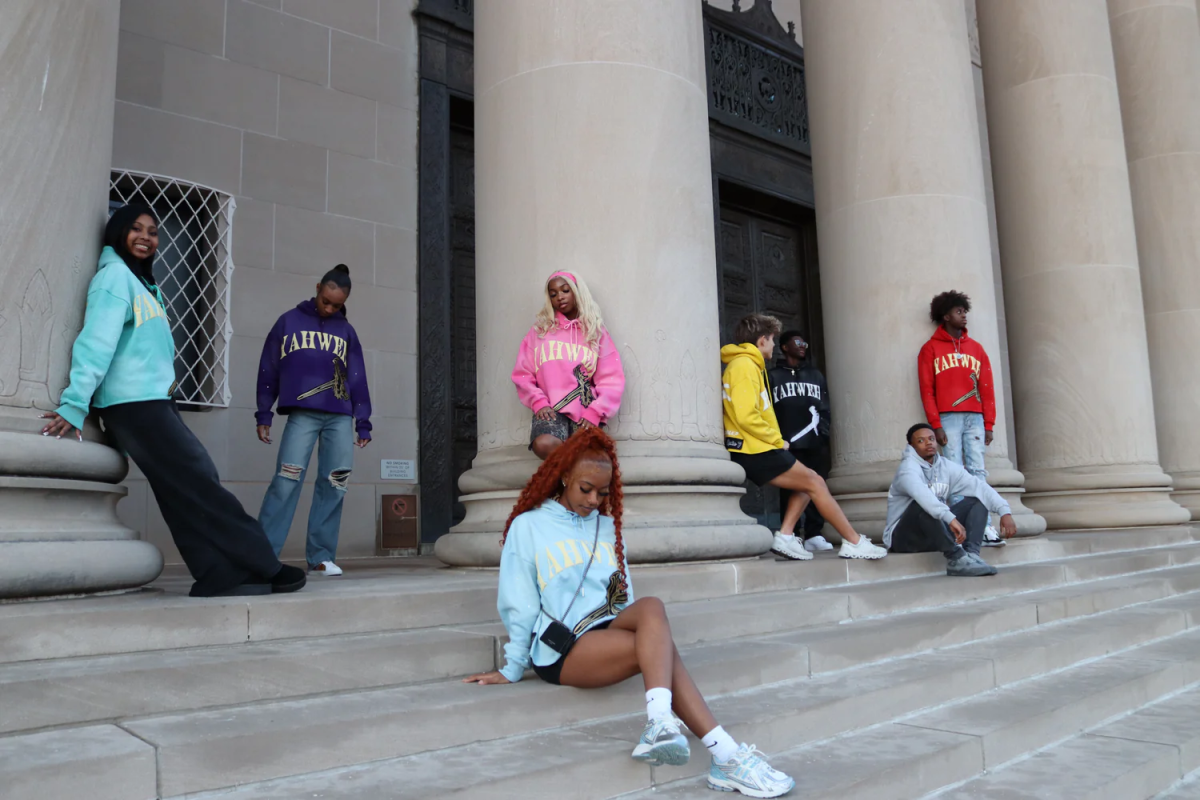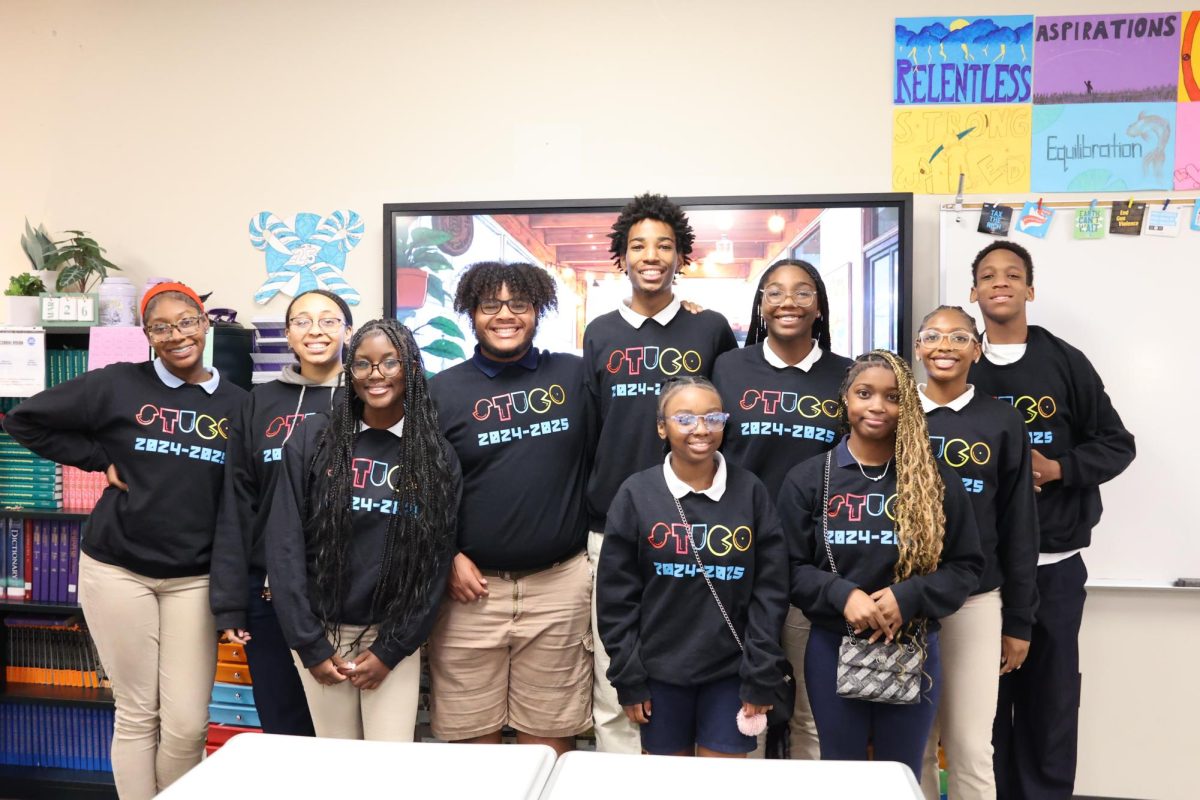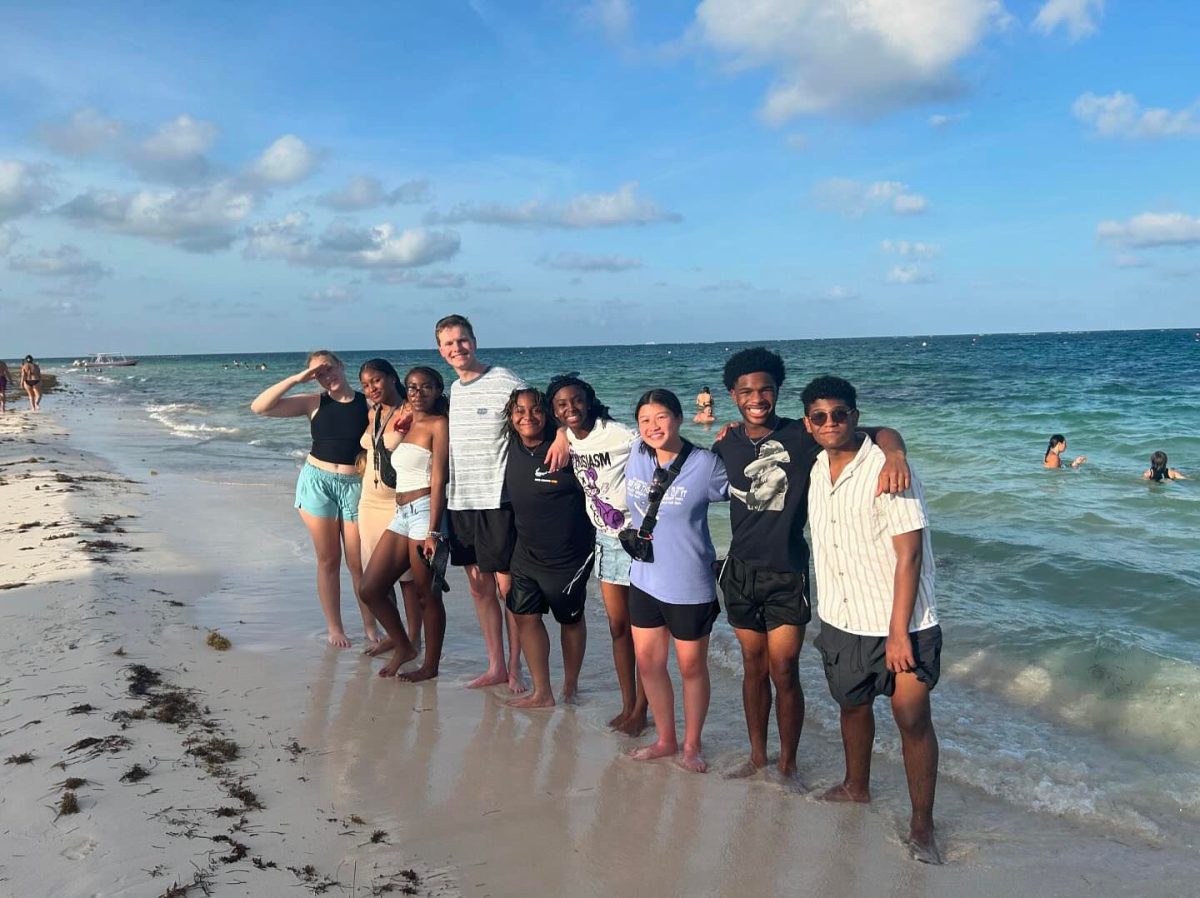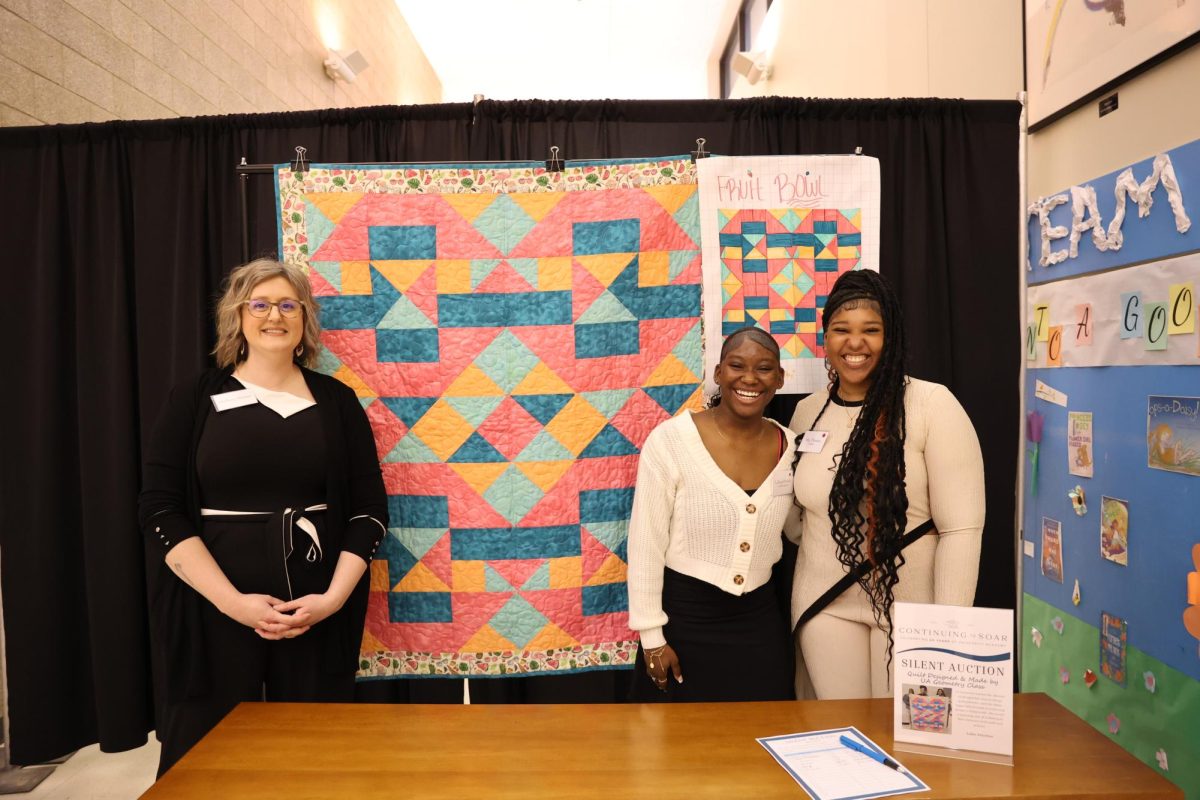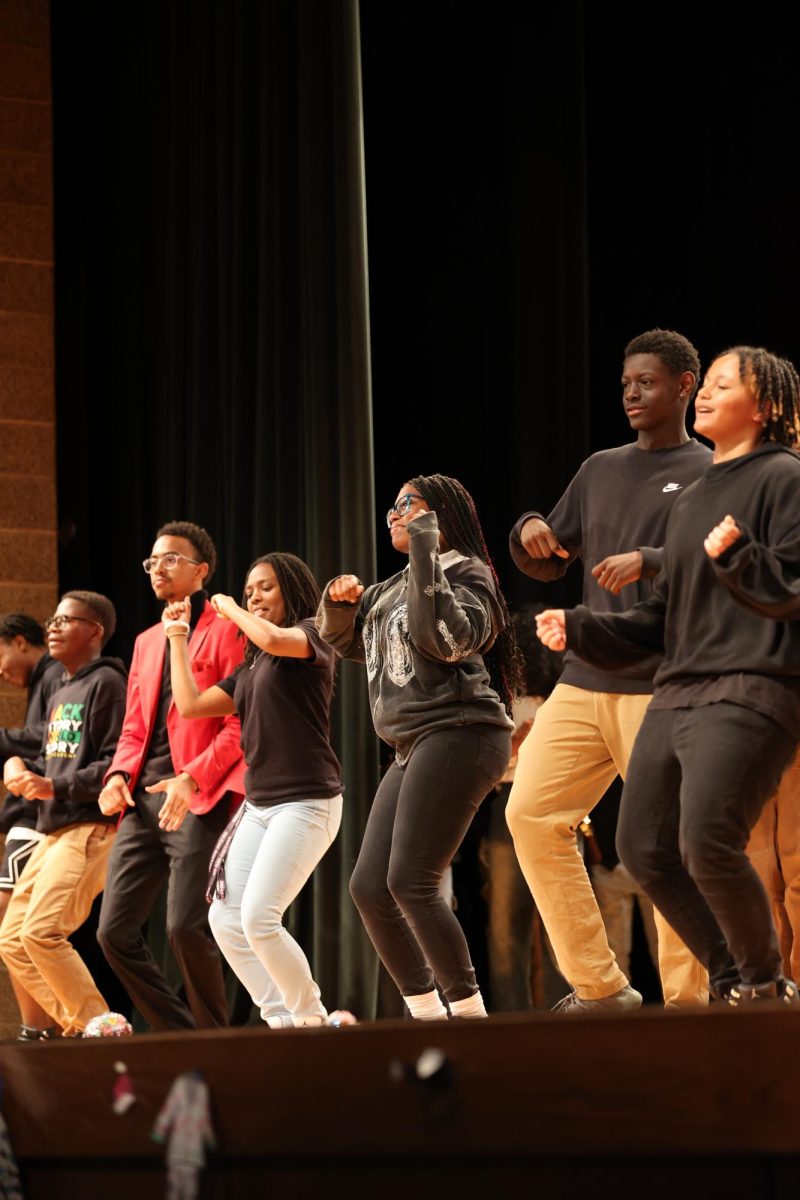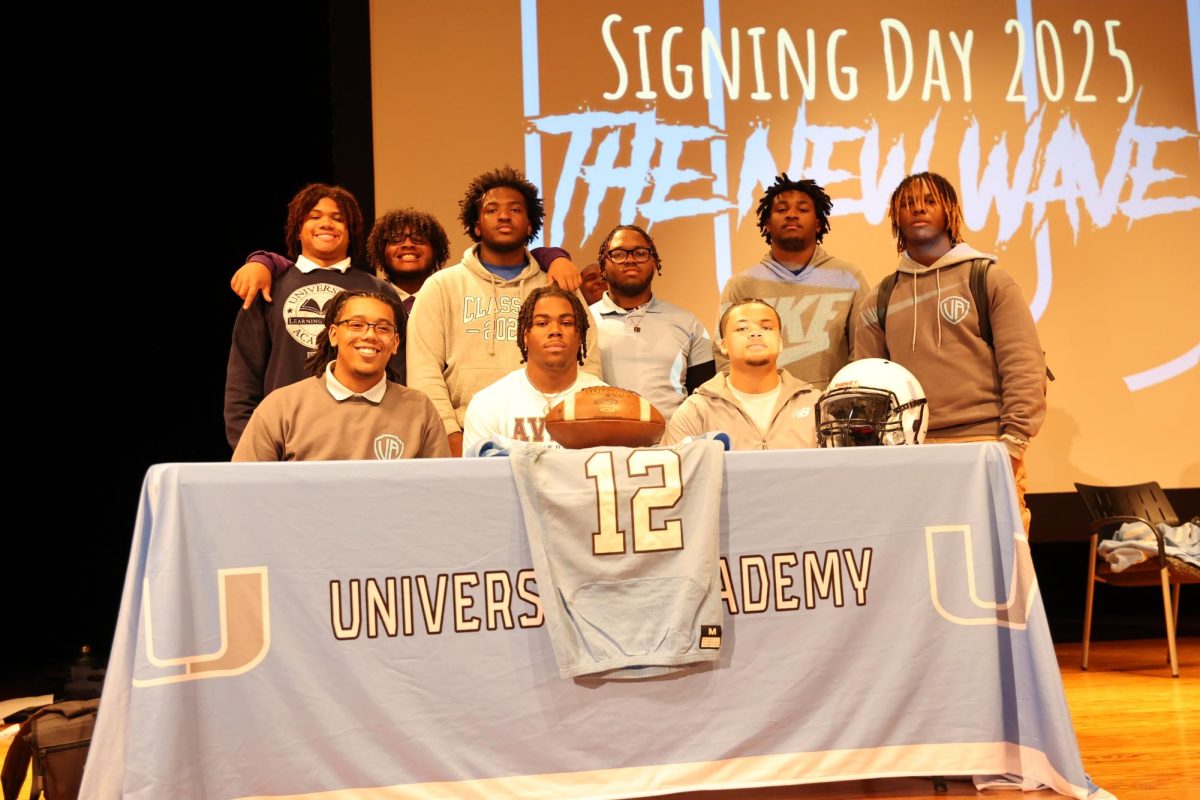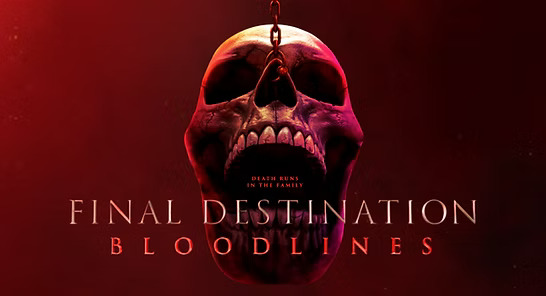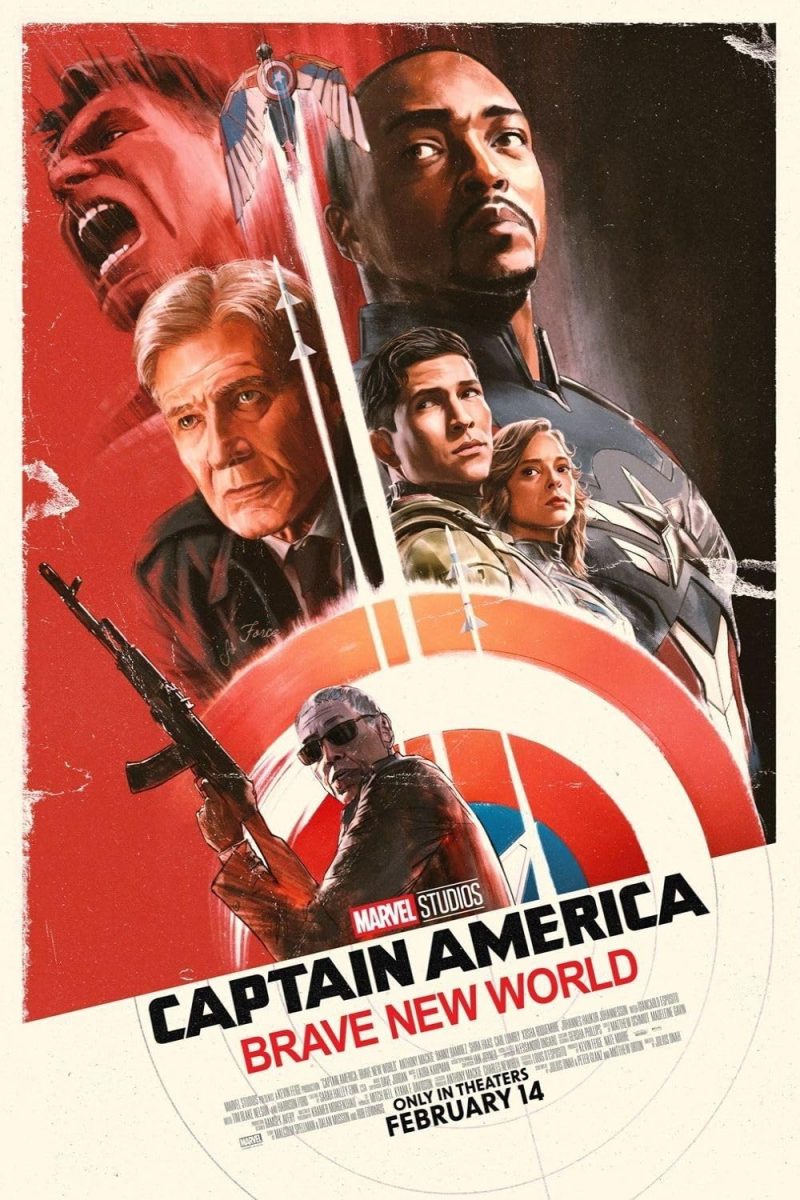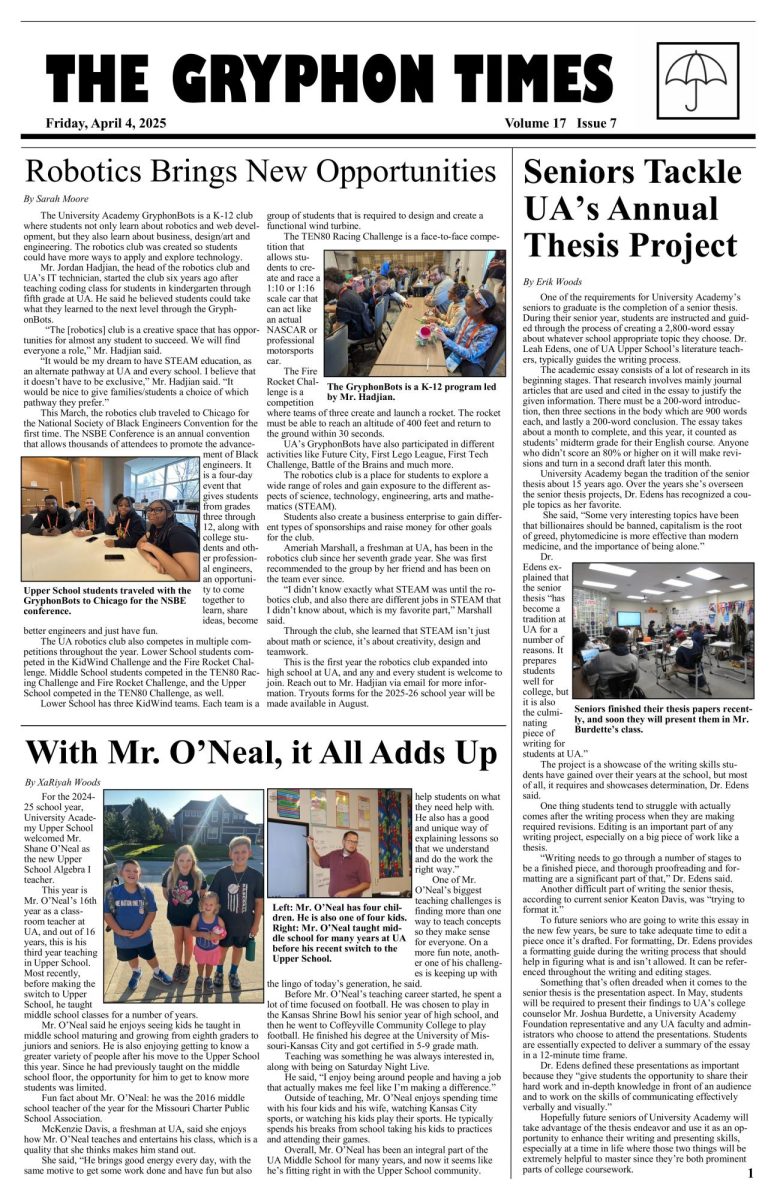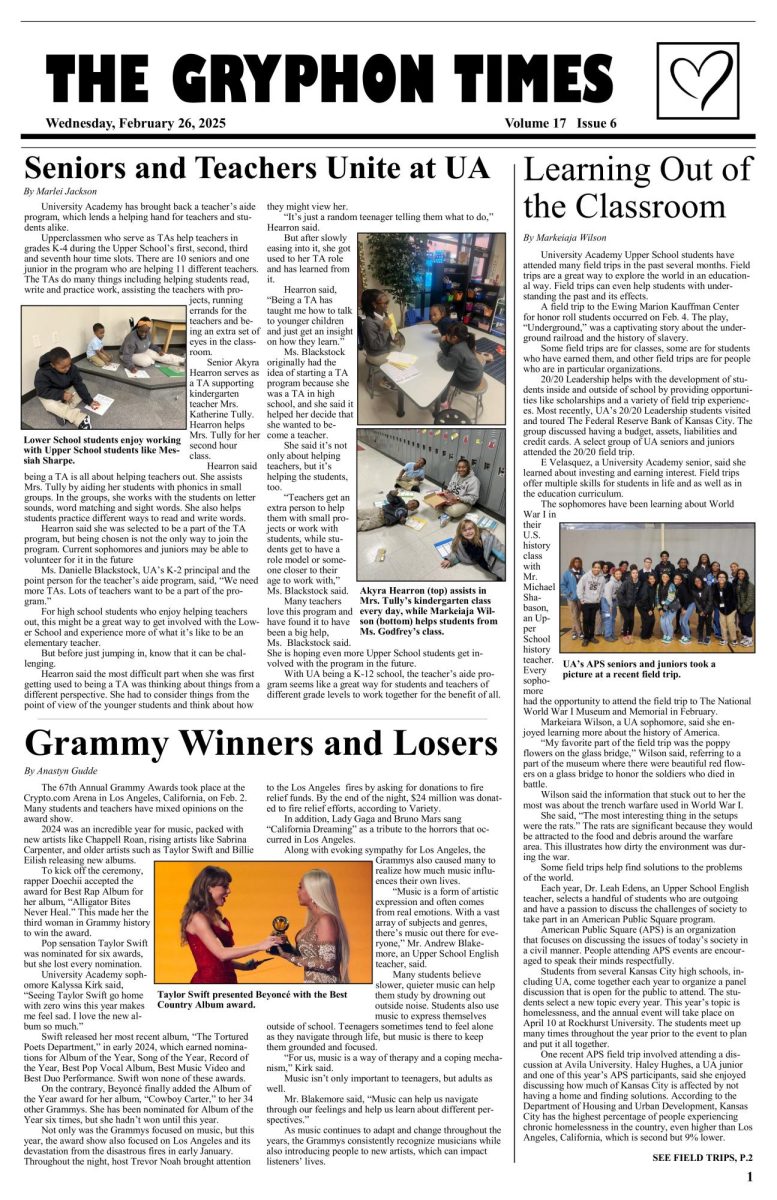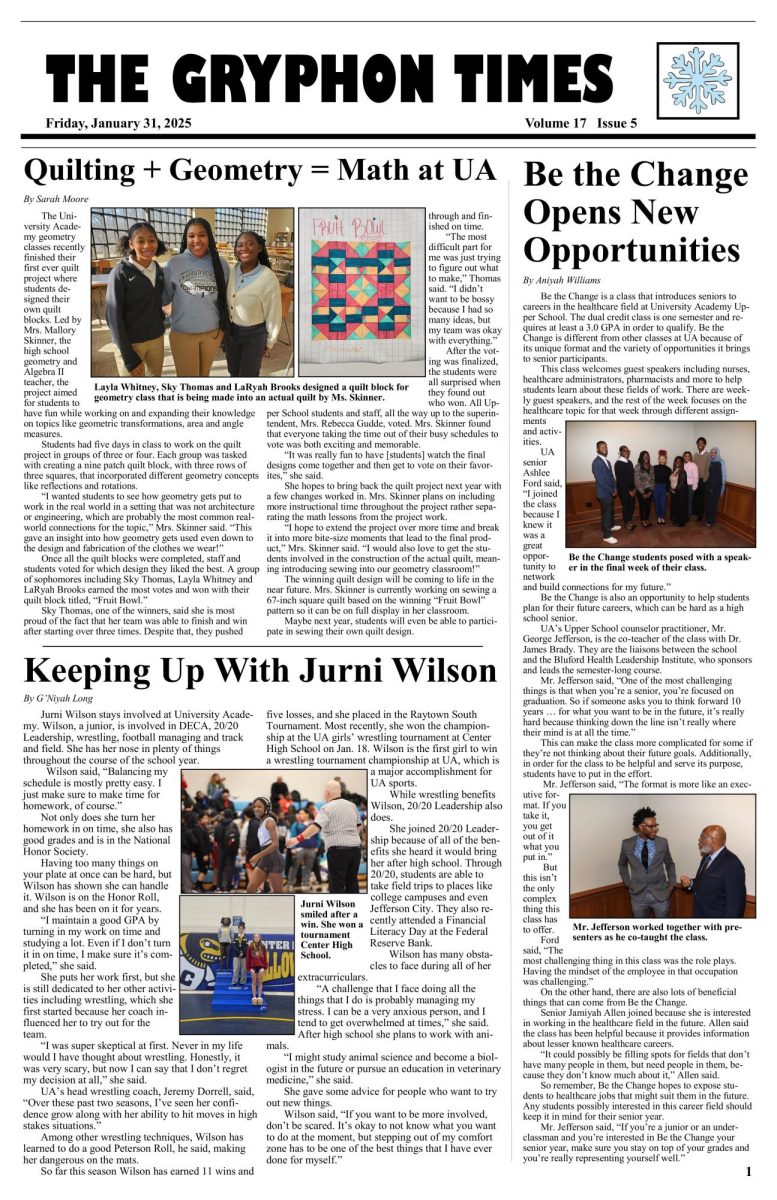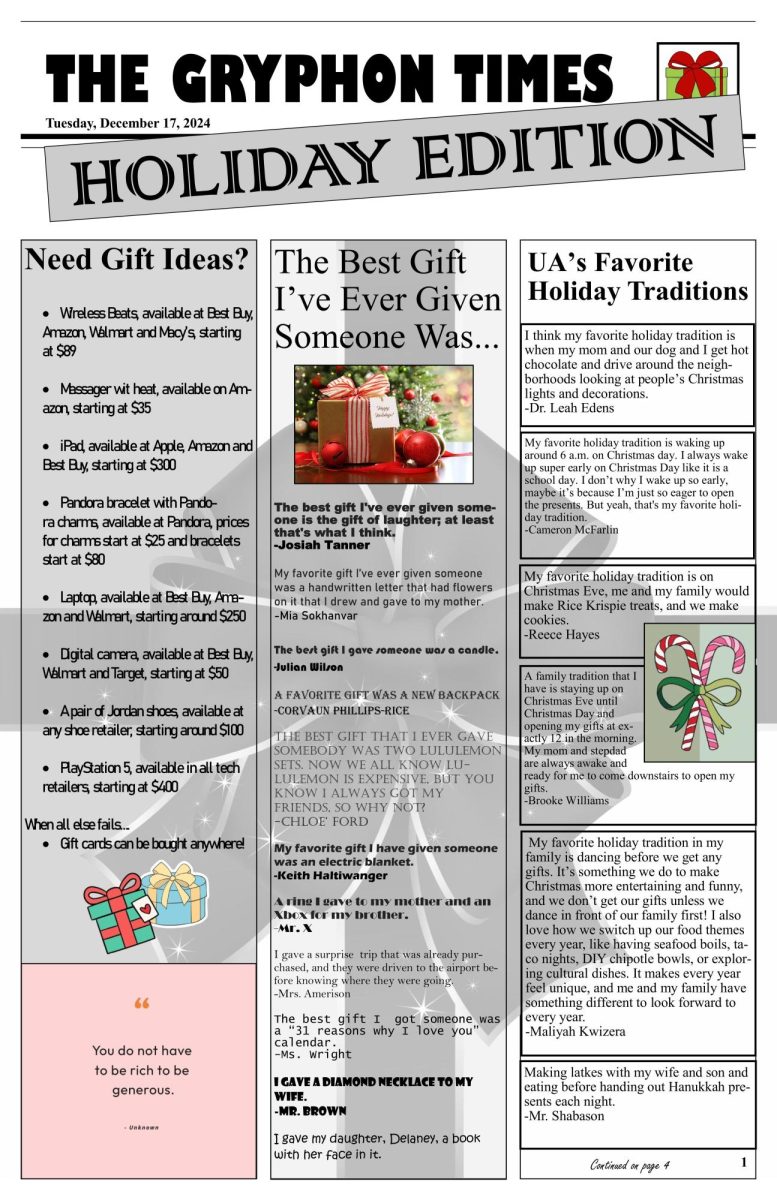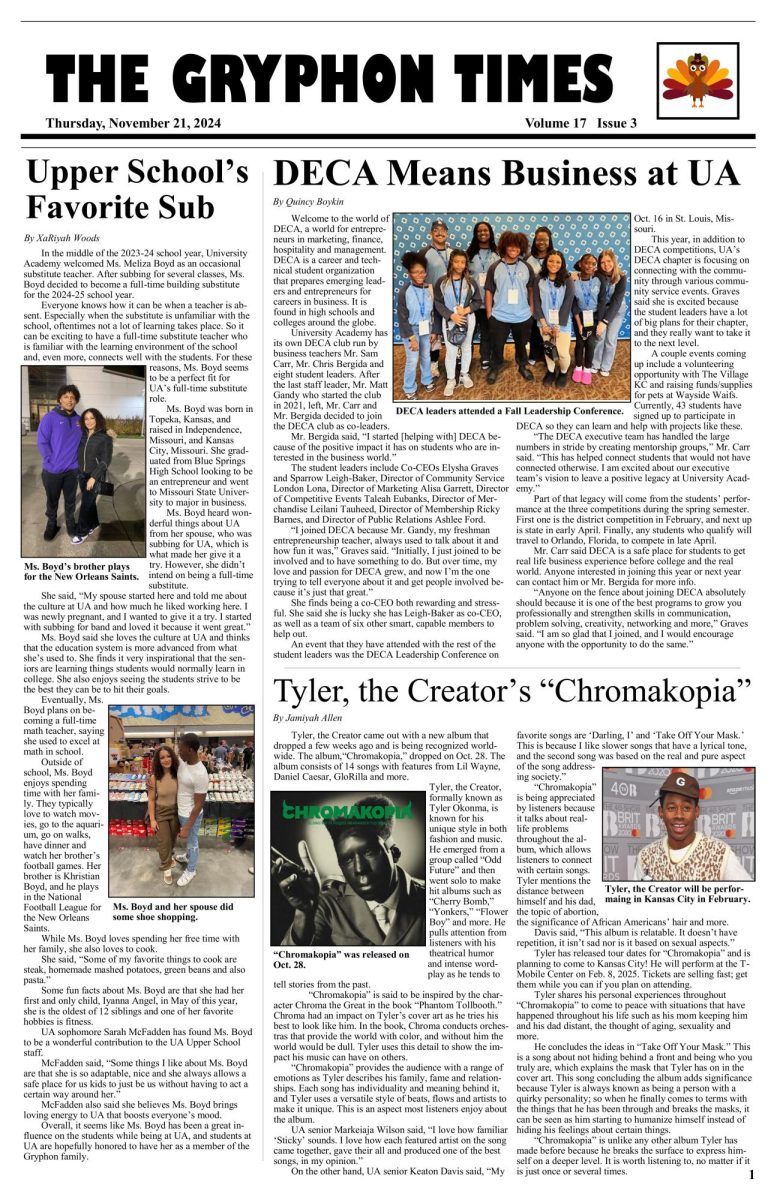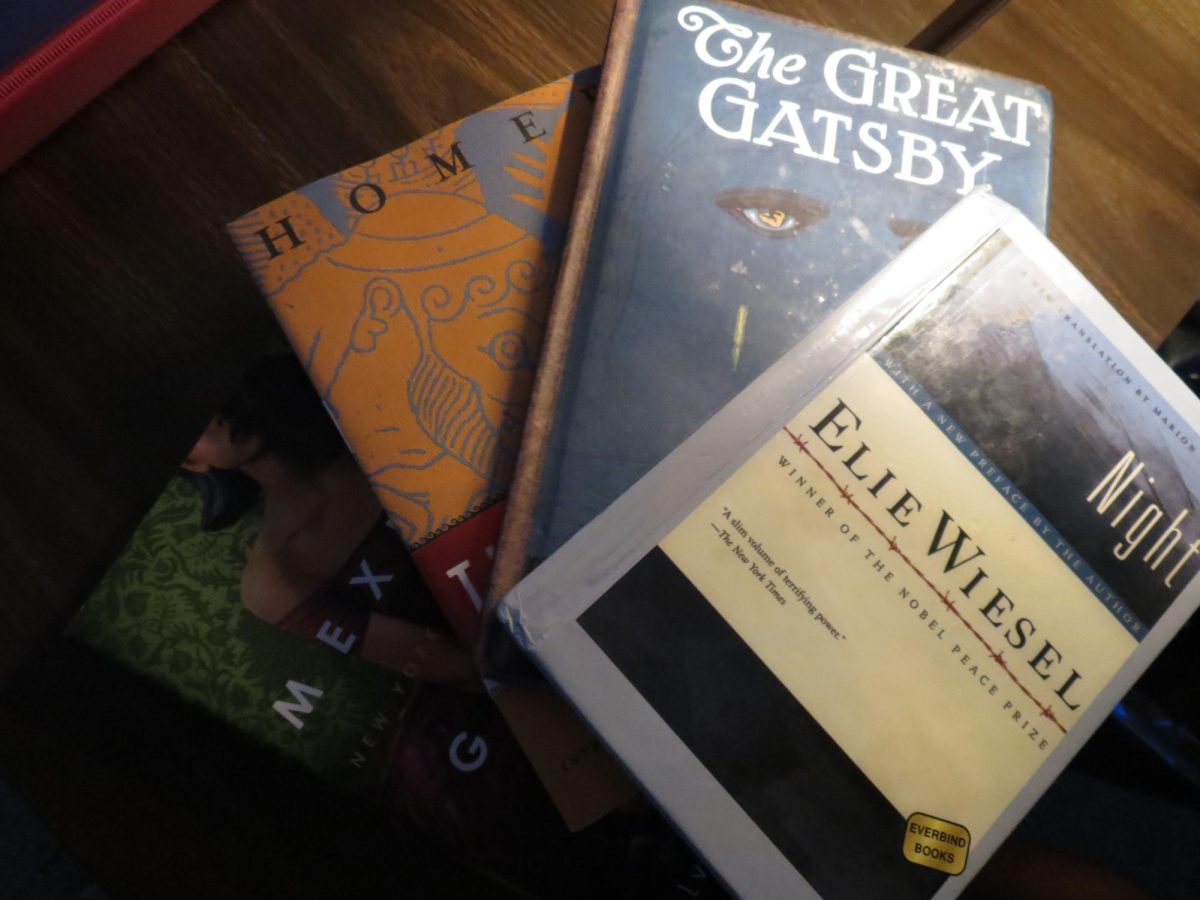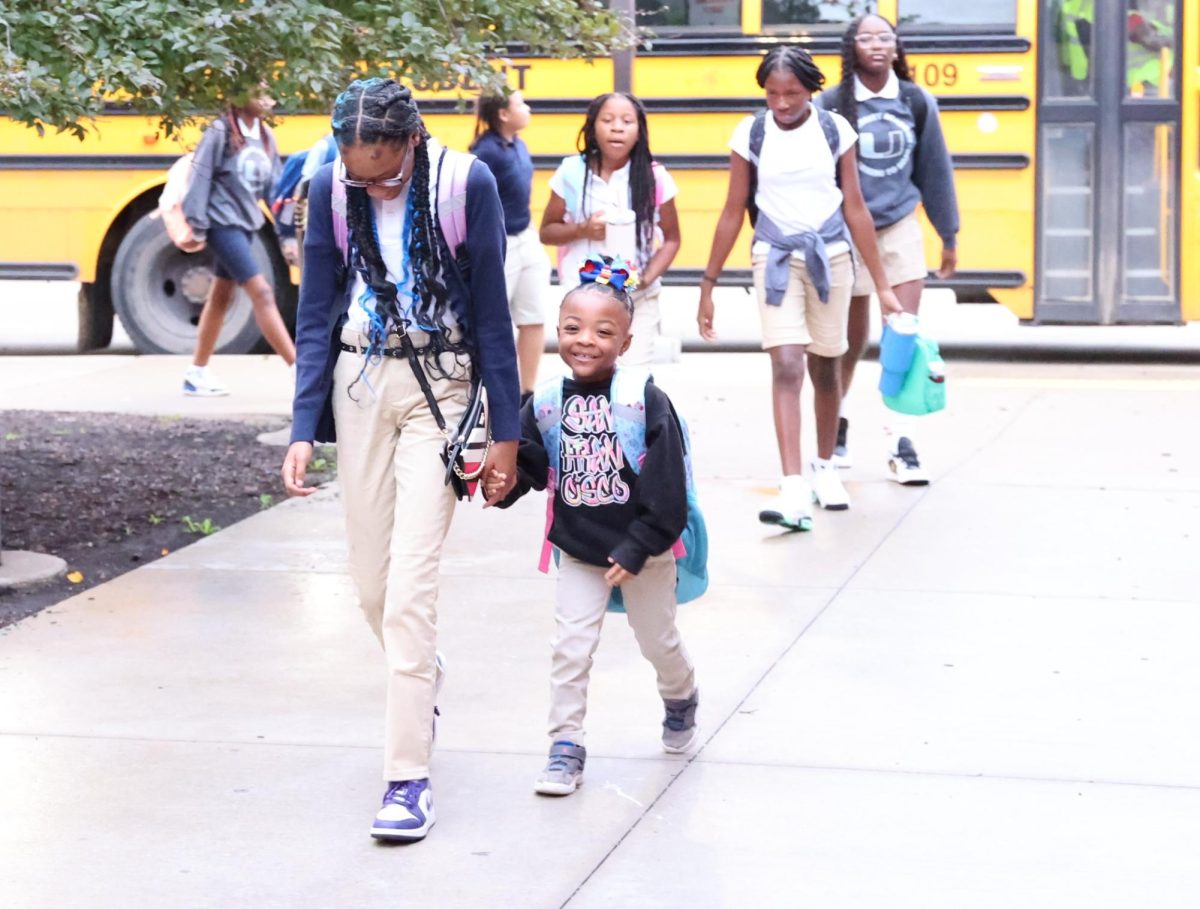University Academy challenges every student to be college prepped. One way UA does this is by teaching students through challenging books. Upper School students are all currently reading a book in their literature classes. Their reading levels and subject areas are different, and so are their opinions on the books being read.
Laniyah Harris, a freshman at UA, enjoyed reading “Night,” by Elie Wiesel, in her world literature class. The book taught her about another time in history when a group of people didn’t have much freedom, which she said reminded her of African American slavery. It also taught history about the Holocaust.
Generally speaking, each grade level tackles a new book each quarter. In the third quarter, as the freshmen read “Night,” sophomores read “The Great Gatsby,” by F. Scott. Fitzgerald, juniors read “The Odyssey,” by Homer, and the seniors started reading “Mexican Gothic,” by Silvia Moreno-Garcia.
Teachers try to choose books that won’t drain students from how long they are. Students sometimes lose interest in the selected books, although this is not the case for all students; some could be the exact opposite.
Harris said, “Sometimes I get tired of reading them because sometimes the books are just boring at first and not interesting. But when I start reading them more and getting more into them, it’s not as boring, and it gets more intriguing.”
Others might not be engaged, or they just simply don’t like reading. This might lead to them having missing assignments and struggling more with quizzes and tests.
Ry’onna Ross, a sophomore at UA, said reading “The Great Gatsby” in her American literature class was difficult at some points. For example, writing about chapters was easy, she said, but reading out loud to classmates was not.
In “The Great Gatsby,” there were a lot of moments where UA’s sophomores were on the edge of their seats—cliff hangers every other scene and much more.
Ross said about “The Great Gatsby,” “My favorite moment is every part.”
Books that students enjoy are often relatable, which makes it easier to connect to them. They might remind students of things that have happened in their past, or they might even help them to dream about their futures.
Ross said, “This book is great when you look back on it, and it kind of gives you an imagination of how life will be in the future.“
Hopefully students read some of their own books outside of class, but if not, in literature classes, they get to read many throughout their years at UA. The books may seem very exciting and interesting, or they could seem boring and gloomy. You never know how it’s going to be until you tune in.




